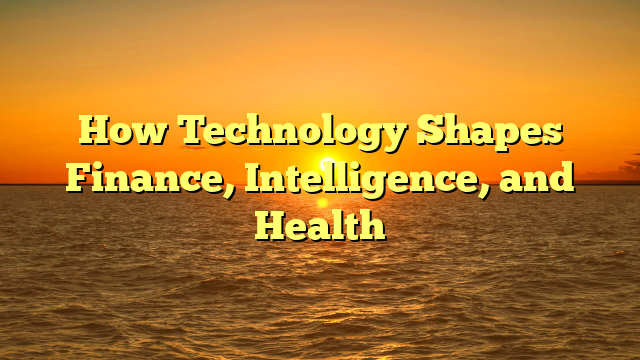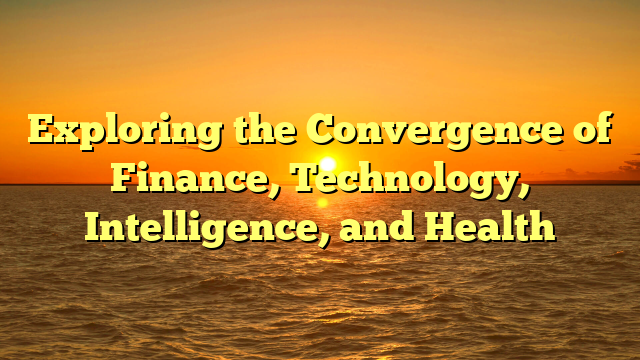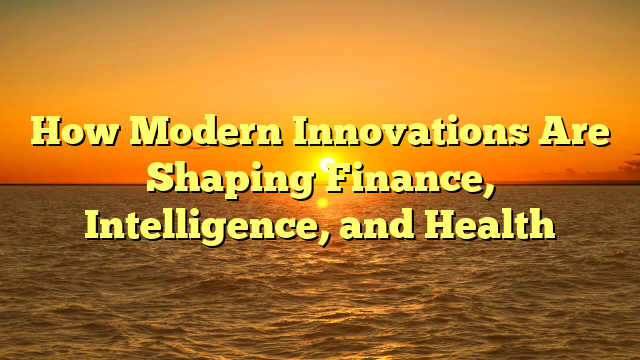
The rapid growth of technology is influencing almost every field of our existence. Whether it’s through fintech, the rise of artificial intelligence (AI), or breakthroughs in medical technology, we are witnessing a revolution that is changing how finance works, understand intelligence, and improve health outcomes. This article explores how these advancements are reshaping society in positive and complex ways.
How Technology is Reshaping the Financial Landscape
Technology is revolutionizing finance in ways that were previously unimaginable. Innovations such as blockchain, cryptocurrency, and robo-advisors have not only made financial services more accessible but also more transparent and secure.
Blockchain, for example, has emerged as a powerful tool for securing transactions, and its potential extends far beyond cryptocurrencies like Bitcoin. With situs togel to create secure, tamper-proof digital records, blockchain is being explored for use in smart contracts, digital currencies, and reducing fraud in financial systems.
AI is transforming the financial industry by enabling more efficient and personalized services. For example, machine learning models are now used to make investment decisions, track market trends, and even provide personalized financial advice, democratizing wealth management for individuals from all backgrounds.
The Role of AI in Shaping the Future of Intelligence
AI is often touted as the next frontier in intelligence, as it enables machines to perform tasks that previously required human cognition. From speech recognition to image recognition, AI is capable of tasks that demonstrate its ability to learn, adapt, and even exhibit creativity.
In the realm of healthcare, AI-powered diagnostic tools are enabling doctors to make more accurate diagnoses, predict potential health risks, and develop personalized treatment plans. AI is also being used in drug discovery and genomics, helping to uncover new therapies for diseases that were once considered untreatable.
Moreover, AI is helping to bridge the gap between human intelligence and machine learning. In fields such as neuroscience, AI is being used to model and understand the complexities of the human brain, bringing us closer to creating machines that can think and reason in ways that mimic human cognition.
How Technology is Revolutionizing Healthcare
The healthcare sector has also experienced a dramatic transformation due to technological advancements. From virtual health consultations to personalized health tracking devices, technology has made healthcare more efficient and accessible than ever before.
Telemedicine is one of the most significant advancements in healthcare, especially in areas where access to traditional healthcare services is limited. By allowing patients to consult with doctors remotely, telemedicine is bridging the gap between rural and urban healthcare access, reducing waiting times and ensuring timely care.
Wearable technology is also playing an increasingly important role in healthcare by allowing individuals to monitor their health in real-time. Devices such as fitness trackers, smartwatches, and even smart clothing provide continuous data on various health metrics, helping individuals stay informed and make better lifestyle choices. Additionally, these devices are aiding in early disease detection and prevention.
AI is also having a profound impact on healthcare, as it helps doctors analyze patient data, predict health risks, and provide personalized treatment plans. By integrating AI with electronic health records (EHRs), doctors can have real-time access to patient histories, making diagnoses faster and more accurate.
Conclusion
In conclusion, the integration of technology in finance, intelligence, and health has brought about unprecedented changes that are reshaping the world as we know it. The future holds great promise as technology continues to advance, offering new opportunities for individuals and businesses alike. As we move forward, it is essential to stay informed and adaptable to these changes, embracing the possibilities they bring while also addressing the challenges they present.





